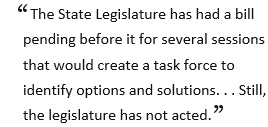[Ed note: My Southborough accepts signed letters to the editor submitted by Southborough residents. Letters may be emailed to mysouthborough@gmail.com.]
To the Editor:
Massachusetts’ public schools are facing a public health crisis: severely sleep-deprived adolescents. Sufficient sleep, adequate nutrition, and exercise are fundamental to good health for everyone, but especially for children. Our public schools operate in a manner that makes it impossible for adolescents to get sufficient sleep.
The week of March 6 is National Sleep Awareness Week, a perfect time for our Legislature and schools to place the health, safety and academic success of our children first above all other factors and address this problem.
 The American Academy of Pediatrics, the Massachusetts Medical Society, the CDC, and many other medical associations agree: adolescents should not begin their academic day before 8:30 a.m. to provide them the opportunity to get sufficient sleep given their unique circadian rhythm.
The American Academy of Pediatrics, the Massachusetts Medical Society, the CDC, and many other medical associations agree: adolescents should not begin their academic day before 8:30 a.m. to provide them the opportunity to get sufficient sleep given their unique circadian rhythm.
Sleep-deprived adolescents cannot learn as well as those with sufficient sleep. They also face higher risks for diabetes, obesity, heart disease, depression, and anxiety, and are more likely to engage in risky behaviors such as substance abuse, sexual conduct, and suicide attempts or suicide. Adolescent athletes face higher rates of sports injury and longer recovery times, including recovery from concussions. Driving drowsy is equivalent to driving drunk, yet parents allow their sleep-deprived teens to drive to school daily, putting themselves and the public at risk. Parents face liability for allowing a teen to drive away from their home drunk, but there is no liability if that same teen drives away drowsy and hurts or kills someone in a car accident.
School officials are aware. Some have refused to address the problem despite parents’ pleas to do so. Others are trying to address the problem but face a catch-22 because our schools are so interconnected through athletics. One school cannot shift its hours of operation later without putting into disarray the game schedules with schools that are still operating at unhealthy, early hours. Some athletic directors are blocking the change to later school start time because it makes their job harder. School officials who want to do the right thing for the children face the impossible task of getting an entire athletic conference of schools to shift hours of operation at the same time. Collective action is the most effective way to solve this problem, but the schools need help doing that.
The State Legislature has had a bill pending before it for several sessions that would create a task force to identify options and solutions to the challenging logistics that schools face in making the shift to a healthy academic day. The Massachusetts Association of School Committees endorsed that bill in 2015. Still, the legislature has not acted. And so our children remain sleepless in Massachusetts.
Mary Hamaker, president, Massachusetts Chapter – Start School Later, Inc.
Start School Later is a 501(c)(3) nonprofit organization working to ensure school start times compatible with health, safety, education, and equity. For more information visit www.StartSchoolLater.net

